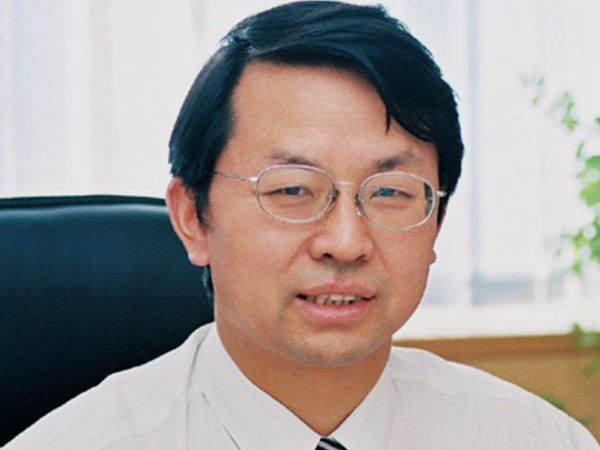Fusuo Zhang
During the past thirty years, fertilizer use in China has grown rapidly. Unfortunately, information on how to use fertilizers wisely has not spread as quickly, leading to low nutrient use efficiency and related unwanted environmental impacts. The nutrient management research directed by Fusuo Zhang, who has been selected to receive the 2007 IFA International Crop Nutrition Award, has provided innovative approaches to help correct these problems.
Professor Fusuo Zhang is Dean of the College of Resources and Environmental Sciences at China Agricultural University.
Since 1998, much of his work has concentrated on the development of optimized nutrient management techniques for high-yield and high-efficiency crop production. This method involves better matching applications to crop nutrient requirements by taking into account all sources of nutrients, including significant quantities of nitrogen from atmospheric deposition (more than 60 kg N/hectare in parts of the North China Plain). His approach involves nutrient budgeting, dynamic monitoring of nutrient concentrations in the root zone (rhizosphere) at different points in the growth cycle, real-time soil testing and plant analysis.
Among his many other accomplishments, Professor Zhang has served as project leader for two large Sino-German research projects in the North China Plain concerned with sustainable farming (1998-2003) and modelling of material flows and production systems for sustainable resource use in intensified crop production (2004-08). He led another project between 2003 and 2006, funded by the Ministry of Agriculture of China, on nutrient management in the country's main cropping systems to improve nutrient use efficiency, crop yield and environmental protection. These projects demonstrate the impact of improper fertilizer application (especially the overuse of N fertilizer and unsuitable timing of fertilization) on major crops, including rice, maize, wheat, vegetables and fruit trees.
Professor Zhang's work has had impacts on a wide scale due to his numerous partnerships with fertilizer companies, government extension services and farmer associations. Starting in 1996, his techniques were successfully applied in 12 cropping systems located in 18 provinces, reaching approximately 4.9 million hectares. By reducing excessive nutrient applications, participating farmers were able to save money and to increase their total net income by USD 428 million.
Inspired by this outcome, the central government of China invested some USD 700 million in more than 1000 counties during 2005-06 to promote the adoption of fertilizer recommendations based on soil testing led by Professor Zhang. The Ministry of Agriculture estimates that grain yields in the project zones increased by eight to 15 per cent as a result and fertilizer use efficiency by five per cent. These efficiency gains avoided the unnecessary use of 2.3 million tonnes excess fertilizer.
Private sector partners have also contributed to more efficient fertilizer use, with some 240 companies providing soil testing, fertilizer use recommendations, appropriate products and crop advisers. As well as changing the quantities they apply, farmers have also embraced a better product mix. Wider use of compound and blended fertilizers has improved nutrient balances, another important element of fertilizer use efficiency. A growing number of fertilizer companies and government agencies have subsequently developed strategies to better manage phosphorus resources.
In recent years, Professor Zhang's work has been motivated by general concerns about natural resource management and the sustainable development of China's fertilizer industry. One of his research projects found that the country's high-grade phosphate rock would be exhausted by 2014 unless more efficient mining and processing technologies were put in place.
In 2005, the State Council of China awarded Professor Zhang the National Natural Science Prize (the country's most prestigious science award) in recognition of his work on rhizosphere nutrient management. He is the only plant nutrition and fertilizer scientist in China to have received this prize.
As a highly respected scientist with solid international credentials, Professor Zhang has authored or co-authored numerous papers and book chapters, presented or published the world over. Many of his research projects entail international collaboration. Professor Zhang's laboratory has become an important national and international centre for scientific research on plant nutrition, and one of the outstanding international platforms for scientific training in this field.
IFA member JSC Uralkali nominated Professor Fusuo Zhang for the IFA award, which he accepted on 22 May during the IFA Annual Conference.

